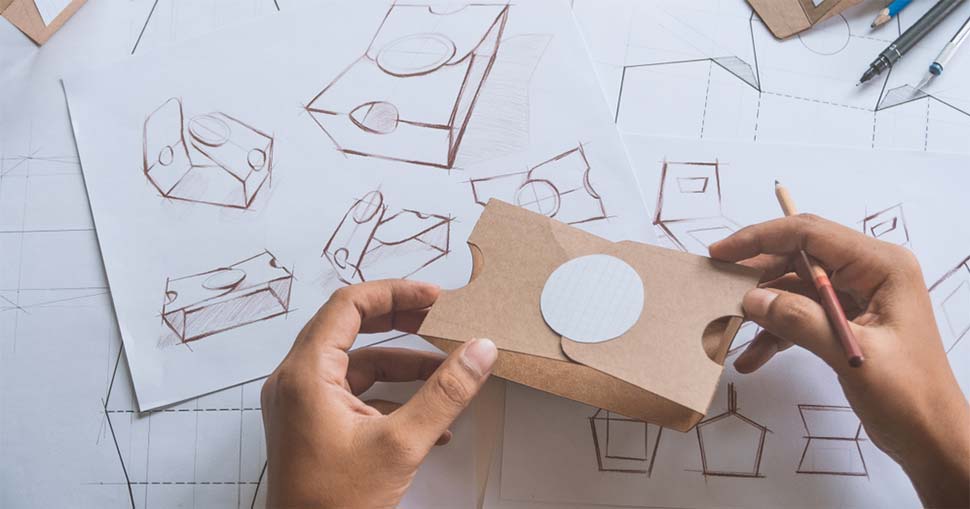Parisa Maleki, Community & Content Manager at Easyfairs,discusses how packaging design needs to adapt to its new responsibilities, what this means for the unboxing phenomenon, and how blending product and package is the way to go.
What would a luxury product be without suitable packaging?
As packaging and its many constraints evolve, it has also become necessary to consider changing expectations and ethical and societal issues between sustainable development and personalisation.
Good packaging still makes the product, or more specifically, the sale. It is like a shop window. Something that should make people look forward to the content.
Conjuring up luxury takes magic and time. But now, packaging design must adapt to new responsibilities. Walk a tightrope, where even the slightest mistake by a brand is pilloried. And the luxury sector is gradually starting to explore a more responsible version of this.
A different kind of extravagant
Luxury has traditionally been associated with lavish, over-the-top packaging.
The often frivolous and excessive nature of luxury can be neatly tied to elevating products to art. So, when did luxury packaging become as coveted as the objects it contains?
Take Tiffany's Blue Box: the most desired luxury packaging in the world. These iconic encasements have been as stalwart a dimension of the Tiffany brand as the diamonds themselves.
Not only is the colour trademarked and given its own Pantone reference, but the white satin ribbon and even the term "Tiffany Blue Box" are guarded by lawyers.
Few categories have been reshuffled as much as luxury. Items are held to the highest standards of design and detail. But the sector is starting to explore a more responsible version of this.
Take our delight in the beauty of the butterfly; we rarely acknowledge the changes it has gone through to achieve that beauty.
Although historically at odds, it is possible to balance luxury with the interests of today's eco-conscious consumers. Where previously emotion would take over, and practicalities fade into insignificance, sustainability straddles both and, consequently, is front and centre.
We must adapt and develop innovations somewhere at the crossroads of beauty, usefulness, and respect to guarantee the future of luxury.
Suppose you haven't begun the process, are mid-journey, or want to drive further improvements. In that case, London Packaging Week (LPW) is a well-trodden path toward positioning yourself as a pioneer of positive change.
Sustainable packaging has struggled to appeal for years due to its reputation for side-lining luxury, instead favouring rustic simplicity and basic functionality. But not anymore.
LPW is renowned as one of the premier exhibitions for sustainable and stylish packaging solutions worldwide. Top luxury brands often walk the floor of the ExCel on the lookout for sophisticated packaging that prioritises their environmental commitments while adhering to aesthetic expectations.
Doing the next right thing
We're in a place where we need to rethink how we pack things completely. A time when less visual impact proves you're listening to your customers.
We've been over-packaging for decades without being conscious of our choices. We've been looking at design, material, execution, craftsmanship, layers, and foils before considering sustainability.
The game is now about blending in with the environment and not competing. And not because you must – because you want to.
The question is not whether brands and packaging manufacturers should be on a path to demonstrably better outcomes but how they get there. This is a complex matter, especially when manufacturers operate across markets and categories, relying on the scale to make their environmental shift effective and profitable.
Hope for the sceptics
Good packaging design makes the unboxing experience memorable, special, and tempting enough to share on social media platforms. Touch, sound, style, organisation of elements –nothing is left to chance, and everything works together to reinforce the brand's premium positioning. It is an identification tool that must be relevant and perfectly harmonious with the brand.
When pondering how much packaging influences decision-making, consider whether people buy the book for its cover.
Those searching hard enough will quickly see how packaging can be minimal in shape, weight, and graphics but still deliver a premium experience, how it can still retain those sensory aspects, unravelling the ribbons, breathing in the scented tissue paper, savouring the very tactile aspects of unwrapping.
The consumer buys a luxury item for the whole experience, and packaging comes first. The packaging hints at the quality of the products inside the box. And with the barrage of new and exciting materials and influx of new design ideas, there is an opportunity to strike out and showcase the craftsmanship of your brand in a whole new light.
For now, though, when we see an aesthetically pleasing and functional design, ensnared in that evaluation is the relatively new consideration of whether it is damaging the world.
With the right approach, materials, design and packaging partner, it's possible to create luxury packaging solutions that meet consumer desires, are environmentally responsible, and make supply chains and shipping more economical. And the right place to discover these innovations is at London Packaging Week!





